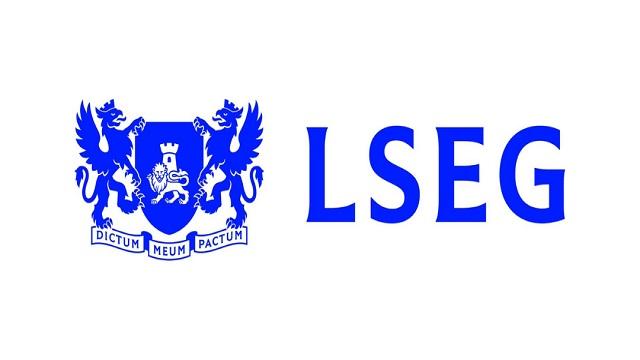NSFAS Is Failing Students – SAUS
The National Student Financial Aid Scheme (NSFAS) has been a cornerstone of South Africa’s higher education system, designed to provide financial assistance to students who otherwise may not have access to quality education. However, over recent years, there have been increasing reports and concerns that NSFAS is failing students in a variety of ways. From delays in funding disbursements to issues with application processing, many students are finding themselves struggling to access the financial support they desperately need to complete their studies.
In this article, we will explore the key reasons why NSFAS is failing students, examine the consequences of these failures, and discuss the ongoing challenges faced by students who rely on this funding.
1. What is NSFAS?
The National Student Financial Aid Scheme (NSFAS) was established by the South African government in 1999 to provide financial assistance to low-income students pursuing higher education at public universities or TVET colleges. The primary objective of NSFAS is to remove financial barriers for students from disadvantaged backgrounds, ensuring that every South African citizen has the opportunity to study, regardless of their socio-economic status.
NSFAS is intended to provide a range of support, including:
- Tuition fees to cover the cost of education.
- Accommodation costs for students who live away from home.
- Meals and learning materials, including textbooks.
The scheme operates through a combination of loans and grants. While loans are typically offered to students who can pay them back after graduation, certain conditions apply for qualifying students, making the support largely non-repayable.
2. Why NSFAS Is Failing Students
While NSFAS has undeniably assisted thousands of students in accessing higher education, there have been multiple criticisms and issues associated with its operation. These problems have led many students to feel that NSFAS is not living up to its potential. Let’s look at the primary reasons why NSFAS is failing students:
A. Delays in Funding Disbursement
One of the most significant issues faced by students is the delay in the disbursement of funds. NSFAS has repeatedly faced issues with timely funding distribution, which leaves students struggling to pay for their tuition, accommodation, and living expenses. Many students rely on NSFAS funds to pay for essential academic resources, such as textbooks, but the delays have led to situations where students are unable to access necessary materials on time.
This delay in payments often leaves students vulnerable to:
- Inability to register for classes.
- Delayed start dates for academic terms.
- Financial strain, as students may have to find alternative means of funding their education.
In some cases, students are forced to drop out of their courses or postpone their studies due to the lack of financial support.
B. Application Process Challenges
The NSFAS application process is another area where many students experience frustration. Despite the process being intended to be user-friendly and accessible, numerous students have reported issues with the online application platform. Students face challenges such as:
- Technical glitches that prevent the submission of applications.
- Failure to receive confirmation or feedback on application status, leaving students in the dark about whether they will receive funding.
- Late application deadlines or miscommunication from NSFAS, which affects the ability of students to apply or appeal.
Many students report that they only find out late in the application process that their applications have been rejected, leaving little to no time to make alternative funding arrangements.
C. Inadequate Communication and Transparency
Another common complaint from students is the lack of transparency and poor communication from NSFAS. After submitting their applications, many students experience long periods of silence from the organization. Even after their applications are approved or rejected, the communication regarding the reasons behind the decisions is often unclear.
Furthermore, when students do reach out for assistance, they are often met with:
- Long response times.
- Unclear or unhelpful information from customer service representatives.
- Lack of follow-up, making it difficult for students to resolve issues or get updates.
This breakdown in communication has caused many students to feel disillusioned and unsupported by the institution that is meant to assist them.
D. Mismanagement of Funds
In recent years, there have been allegations of mismanagement of funds within NSFAS. Some students have reported not receiving the full amount of funds they were entitled to, with discrepancies between what was promised and what was disbursed. This includes:
- Incorrect disbursement amounts for accommodation, transport, or other fees.
- Failure to account for missing payments, leaving students scrambling to cover the remaining costs on their own.
There are also cases where students do not receive funds for multiple years, despite meeting the eligibility criteria, due to administrative errors or internal delays within NSFAS.
E. Unclear Eligibility Criteria
Many students are also frustrated with the complexity of the eligibility criteria. For example, students often face difficulties understanding whether they qualify for NSFAS funding due to the range of documents required and the financial means test. The criteria for different types of funding also change from year to year, leading to confusion.
Additionally, some students report that changes in eligibility have impacted their ability to continue receiving funds from NSFAS, even when they have relied on it for previous years.
F. Unfulfilled Promises of Coverage
NSFAS was originally set up with the promise of providing comprehensive support for students, covering their tuition, accommodation, meals, and other learning expenses. However, in recent years, students have reported that not all their needs are being met. Some students have not received the promised accommodation allowances or meal stipends, while others have been left without the necessary resources to purchase essential learning materials.
The grant amounts provided by NSFAS often do not meet the full cost of living for students, leading to situations where students struggle to cover their educational and living expenses.
3. Impact of NSFAS Failures on Students
The failures of NSFAS have far-reaching consequences on students and their academic success. Some of the impacts include:
- Psychological Stress: Constantly worrying about whether funding will arrive on time adds a layer of stress that affects students’ mental health, reducing their ability to focus on their studies.
- Academic Delays: Without timely access to funding, students may be forced to delay their studies, either by missing registration deadlines or by failing to purchase necessary academic resources on time.
- Increased Dropout Rates: Many students, particularly those who rely solely on NSFAS for funding, may end up dropping out of university due to financial pressures and lack of support.
- Debt Accumulation: Some students are forced to take out personal loans or rely on family members to cover their education, resulting in a cycle of debt that may take years to repay.
4. What Can Be Done to Fix the System?
While the issues with NSFAS are undeniable, solutions do exist. Some potential reforms include:
A. Improved Communication and Transparency
NSFAS needs to prioritize better communication with students, providing regular updates on application statuses, clear reasons for rejected applications, and prompt responses to queries.
B. Streamlined Application Process
The application process needs to be more accessible and efficient. This includes fixing technical glitches in the online platform, extending deadlines where necessary, and ensuring that students have adequate support throughout the process.
C. Increased Funding and Timely Disbursements
NSFAS should ensure that funds are distributed on time to prevent students from experiencing delays in starting their studies or facing unnecessary financial hardships.
D. Better Management of Funds
Improving the management of funds by ensuring that all promised financial support reaches students in full is essential to restoring trust in the system.
E. Clear and Transparent Eligibility Criteria
NSFAS should simplify its eligibility criteria and ensure that students can easily access information on how to apply, qualify, and receive funding.
While NSFAS was originally created to assist students and make education more accessible, students continue to face significant challenges in accessing the financial support they need. From delays in funding disbursement to issues with application processes and communication, the scheme is clearly failing a significant portion of its target audience. Addressing these issues should be a priority for both NSFAS and the South African government to ensure that students are not left behind in their pursuit of education.
As it stands, the gaps in the NSFAS system are harming students’ education, and urgent reforms are needed to protect the futures of those who depend on this vital financial assistance.



